How elections work in
Arizona
More than 7,400 Arizonans work tirelessly to make sure the votes on your ballot are counted.
Learn more about what goes into every step of this process.
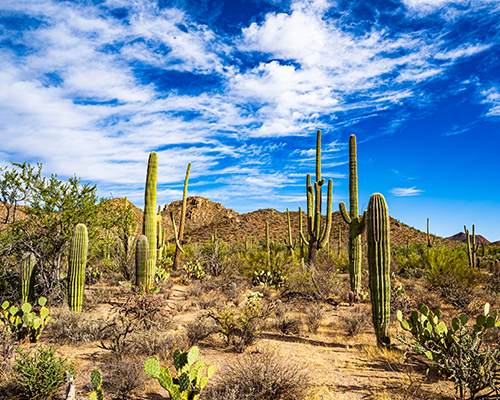


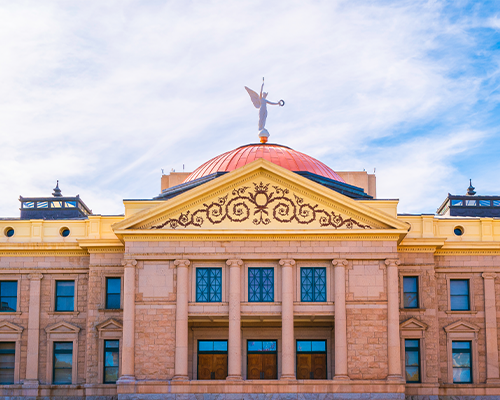


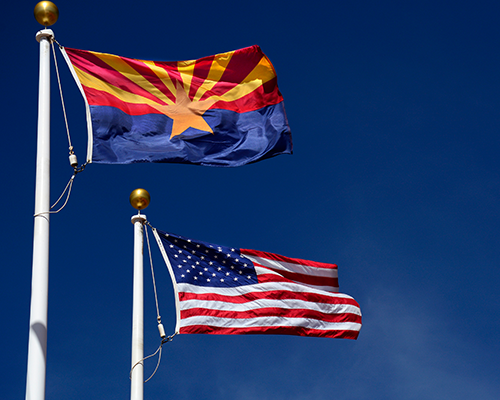
1
WHO RUNS ARIZONA ELECTIONS?

Local officials administer all of Arizona’s federal, state, and county elections. In all 15 counties, the board of supervisors, election director, and county recorder work together to make elections happen following state laws. And they do so with support and oversight by the Secretary of State. All in, more than 7,400 workers and officials ensure Arizona elections operate safely and securely every year.
Arizona’s election professionals can be Republicans, Democrats, Libertarians, Green Party members, and independents. They’re your neighbors and community members. These public servants put aside partisan preferences and work together to ensure that each election runs smoothly, and that each and every vote is secure and counted accurately.
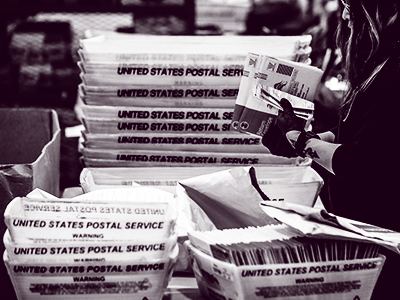
2
WHO CAN VOTE?

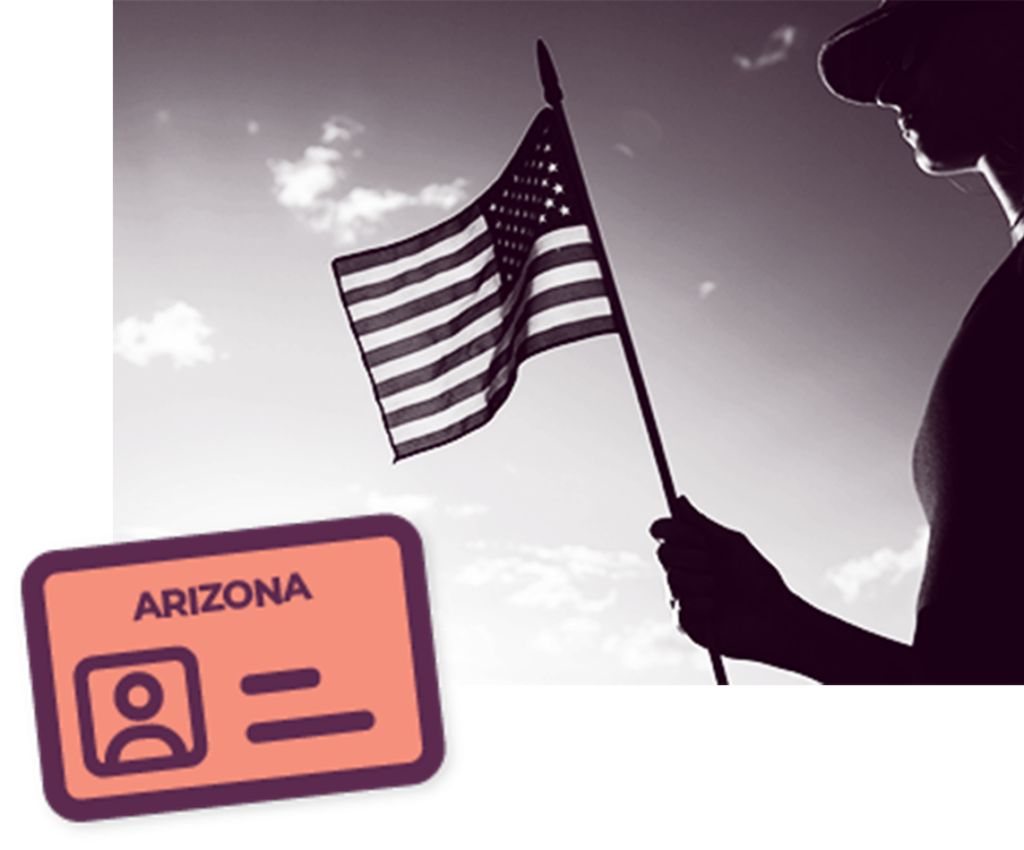
In order to be eligible to vote in elections in Arizona, you must be:
- A U.S. citizen
- A resident of Arizona and the county listed on your registration at least 29 days prior to the election
- At least 18 years old on the day of the general election
Arizona has some additional restrictions, even if someone meets those qualifications. An Arizonan cannot register to vote in the state if they have been:
- Convicted of a felony (unless their civil rights have been restored)
- Found mentally incapacitated by a court (unless their voting rights were preserved)
Officials regularly check and maintain the state’s database of voters according to state and federal law. During all of their checks, officials remove voters from the voter rolls if they’re no longer qualified to vote.
Get more information on where, when, and how to vote in Arizona elections here.
Arizona routinely removes deceased voters from the voter rolls. Every month, the Secretary of State reviews death records from the Arizona Department of Health and uses that information to remove deceased Arizonans from the voter rolls. County recorders can also cancel a voter’s registration based on death notices or affidavits of death from the voter’s family. Arizona also obtains death information from the Electronic Registration Information Center (ERIC), an interstate database.
In Arizona, it’s illegal for non-U.S. citizens to vote in any federal or state election—and it’s even explicitly prohibited in the Arizona constitution.
There are multiple safeguards to make sure only citizens can vote and have their vote counted. First, voters must have documentary proof of citizenship on file, such as a driver’s license or birth certificate, to vote in state elections. Arizona counties are required to cross-check voter registrations on a monthly basis to ensure every voter on the rolls is a U.S. citizen. Counties use multiple databases, including from the Arizona Department of Transportation and the Social Security Administration, to confirm this.
Primaries: Arizona has closed primaries. That means anyone registered with a political party in Arizona can vote only in their own party’s primary. In other words, if you are a registered Republican, you may vote only in the Republican primary.
Independents or voters without party designations on the Active Early Voting List will receive a notice in the mail asking them to choose which party’s ballot they’d like to receive for the primary. Voters who aren’t affiliated with a political party can choose one recognized party’s primary election to vote in, except for Presidential Preference elections. As long as a voter makes a selection and requests a ballot by the deadline, the selected party’s ballot will be sent to the voter.
General elections: All registered voters, regardless of party registration, can vote in non-primary elections, like the general election in November. In those elections, every voter gets a ballot with each of the races they are eligible to vote in.
Note that elections can be held at the local, county, state, and federal levels. These elections can occur at different times of the year. A complete calendar of Arizona elections can be found here.
3
HOW DOES ARIZONA PREPARE FOR ELECTIONS?

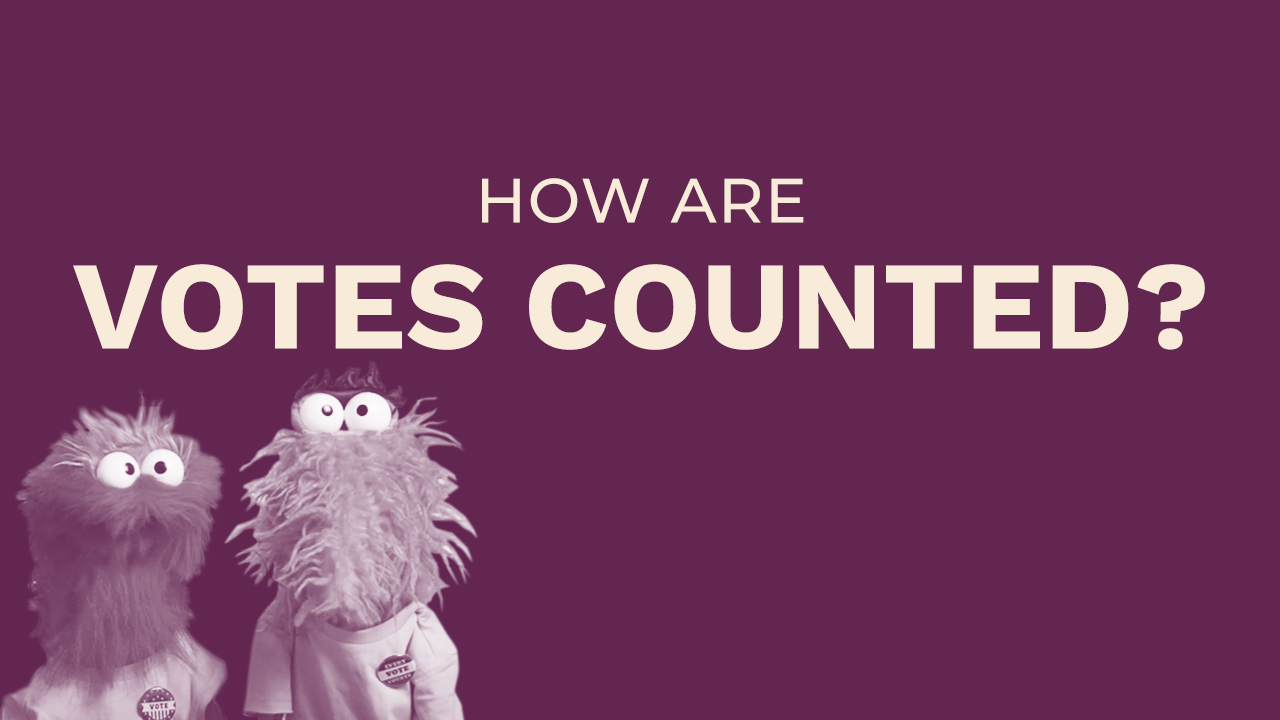
In the months leading up to Election Day, Arizona’s election officials hire and train thousands of local election workers, prepare polling places, and rigorously test voting machines to make sure they work properly.
County Boards of Supervisors determine locations for polling places and secure ballot drop off locations, as well as the hours and days those will be available. There were more than 900 polling places spread across Arizona’s 15 counties in 2020.
4
HOW DO YOU GET & CAST A BALLOT?

Every vote in Arizona is either cast on paper or produces a paper record so that there is a physical record of each and every vote.
There are two different types of ballots you can use to vote in Arizona:
Mail-In Ballot
In-Person Ballot
This is the ballot you receive at your polling place, after presenting either your photo ID or two forms of non-photo ID.
Arizona offers in-person early voting in addition to in-person voting on Election Day.
Once you decide how you want to vote, it’s time to submit your ballot! You can do that…
By Mail
If you applied for and received a mail-in ballot, you are eligible to return it by mail.
Ballots returned by mail must be received by election officials by 7:00 p.m. on Election Day in order to be counted.
Via Secure Drop Box
In-Person
Voters can cast a ballot in person during the early vote period or on Election Day. For the November 2024 election, the early vote period begins on October 9.
You can also return a mail-in ballot in person to any early voting location during operating hours or any polling place in your county on Election Day.
5
HOW ARE BALLOTS KEPT SECURE?

Arizona uses approved, certified voting machines. Every voting machine is routinely tested and maintained to ensure they will provide accurate results during the election. These machines are never connected to the internet.

All ballots in Arizona are subject to strict “chain-of-custody” requirements, and nonpartisan election officials are legally required to monitor and track every ballot through each stage of the process. This includes ballots that are cast by mail, through secure drop boxes, and in person.
Mail ballots are secure because they are tracked throughout the collection and counting process. Mail ballot drop boxes are secure because they are locked and only accessible to authorized election officials.
Arizona has used mail voting since 1918, and it has a long history of being safe and secure. In 1991, Arizona’s then-Republican controlled legislature expanded the use of mail-in ballots to all eligible voters. In the 2022 general election, more than 75% of all Arizona voters signed up to automatically get a ballot by mail, and 90% of those who cast their ballots in 2020 voted by mail.
6
HOW DO I KNOW VOTES ARE COUNTED ACCURATELY?

Vote counting is overseen by local election workers in your county. Additionally, poll observers from different political parties are permitted to observe ballot processing and tabulation. These observers are not allowed to touch ballots.
Ballot tabulation machines are used to count ballots and tabulate the final results. Arizona allows election workers to begin processing and tabulating mail-in and early in-person ballots before Election Day. However, partial and full results—from both mail-in and in-person votes—are not released until after polls close on Election Day.
Results announced on election night reflect an initial tally of all votes cast and are not the official results. Likewise, media projections or exit polls about election outcomes are also not official. Only the final certified results of Arizona elections are official.
By state law, election officials must conduct a limited hand count audit of ballots. This involves randomly selected voting locations and a sample of early ballots. In these audits, the hand counted results are cross-checked against the electronically tabulated results to ensure that counting machines are working properly and that the vote counts are accurate.
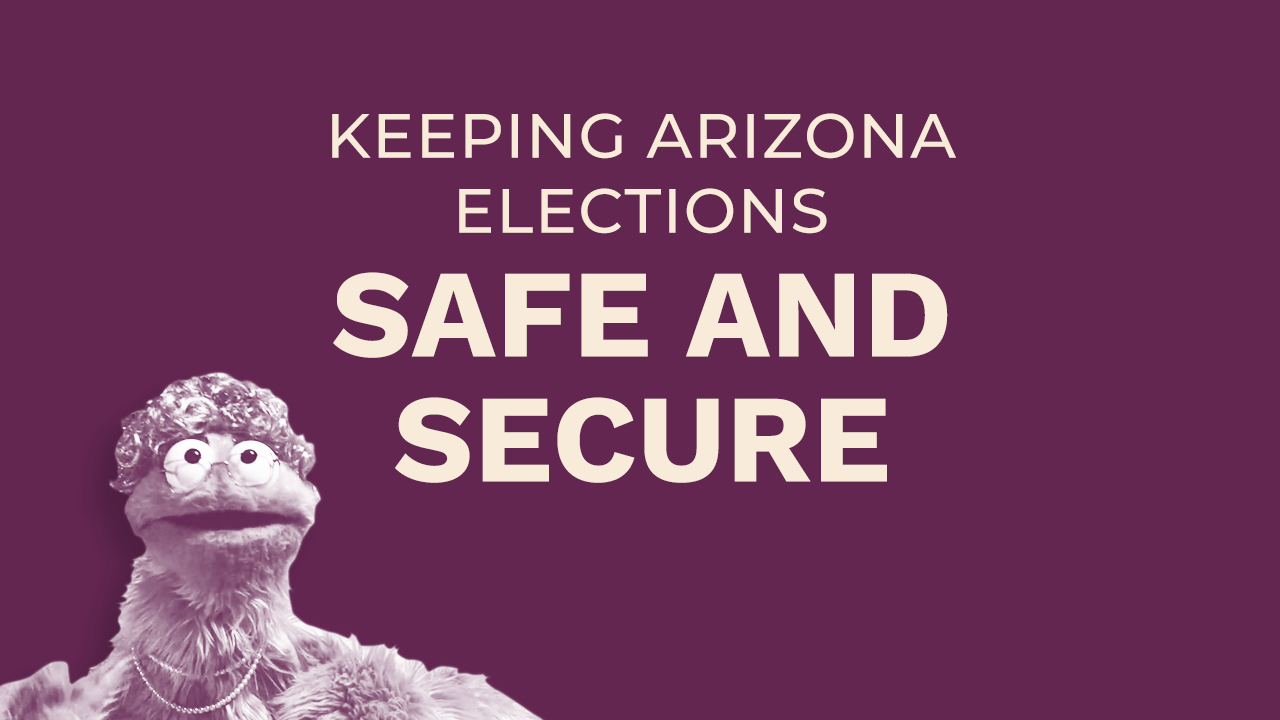
7
HOW ARE RESULTS VERIFIED?

After all votes are counted and audits are performed, the Board of Supervisors in each county “canvasses” the results, examining various records and official documentation to verify the results.
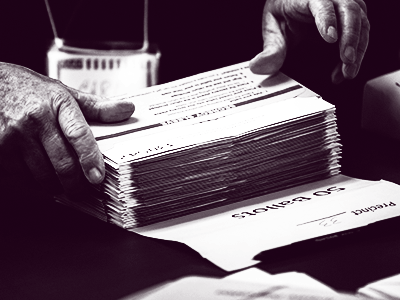
Each of Arizona’s counties has a Board of Supervisors elected by the general public. Supervisors serve four year terms. [Learn More]
Under Arizona law, a recount is automatically required if the margin between the top two candidates is 0.5 percent or less of the total votes cast. There is no other way to initiate a recount, not even by request from a campaign or individual.
Once a recount has been triggered, the Secretary of State, the Board of Supervisors, or the city or town council, obtains a court order to initiate the recount. Local election officials re-run ballots through tabulating machines that have been programmed to tabulate only the races requiring a recount. Counties then submit their results to the filing officer who initiated the recount (the Secretary of State or local election officials), who provides the results to the court. If there are discrepancies between the original results and the recount, the filing officer will reconcile the discrepancy. The court then certifies the official result of the race(s) based on the recount results.
FREQUENTLY ASKED QUESTIONS
You may still have questions about how elections work in Arizona!
Here are some of the most common:
There are a variety of trusted and reliable sources of information about Arizona elections, voting, and results, including from the Secretary of State.
The website Arizona.vote provides up-to-date links and information about when, where, and how to vote.
Your local elections office is a good place to turn with any questions, too. Many elections offices maintain up-to-date websites and social media accounts to keep their voters informed. You can also call them with specific questions. To find your local elections office, click here.
Trusted local news sources like your local or regional newspaper, radio, or TV station can also have up-to-date information on what’s going on with elections near you.
In this day and age, this is, unfortunately, an important question. False information about voting and elections can easily spread online and on social media, so it’s always good to take a moment to consider the accuracy of any stories or claims you see or hear.
Before you share or act on something you’ve read online or heard, make sure the source is credible, verified, and has been backed up or supported by additional trusted sources.
There are clues and tools to help you hone your sense of whether what you’re reading online can be trusted.
Fraud in elections is extremely rare, and election officials have strict processes in place to make sure any attempted fraud would be quickly identified and addressed. None of the many audits and reviews of the 2020 election in Arizona found any evidence of widespread fraud.
In 2020, Arizona Senate President Karen Fann hired an out-of-state company called Cyber Ninjas to conduct an audit of the ballots in Maricopa County. That review lasted until September 2021 and cost $9 million. Ultimately, the Cyber Ninjas’ review confirmed once again that Joe Biden won the 2020 election in Arizona.
In 2020, Arizona’s Republican House Speaker, Rusty Bowers, testified under oath there was no fraud, and he believed requests by Trump’s team to support overturning the Arizona election results were a violation of his oath. Bill Barr, U.S. Attorney General under Donald Trump, investigated claims of widespread fraud and found no evidence. More than 60 court cases and numerous investigations found no evidence of fraud that would have affected the outcome of the 2020 election. No claims of substantial election fraud have survived legal scrutiny, and many were quickly dismissed as meritless, including by Trump-appointed judges.
Experts hired by the Trump campaign to identify instances of voter fraud in the 2020 election found nothing that would have changed the results. The handful of instances of inappropriate votes that they did find were split across both parties.
Incorrect information about elections can spread quickly. You might see false information online, on social media, in a text message, or hear it on a phone call.
If you see false information about where, when, or how to vote (or register to vote), it is a good idea to alert trusted officials.
Intimidating or intentionally deceiving qualified voters to prevent them from voting can be a federal or state crime. You can report potential election crimes—such as disinformation about the manner, time, or place of voting—to:
Arizona elections are run by volunteers in our communities and trusted elections officials who bring years of expertise to ensure that our state’s system of elections works—by the people and for the people.
If you are interested in getting involved in the election process, there are several things you can do. They include:
- Register to vote & cast your ballot.
- Sign up to work as a poll worker in your local city or township.
- Volunteer and train with your local political party or other qualified organization to be a poll observer during the elections process. The major political parties appoint poll observers in every Arizona election.